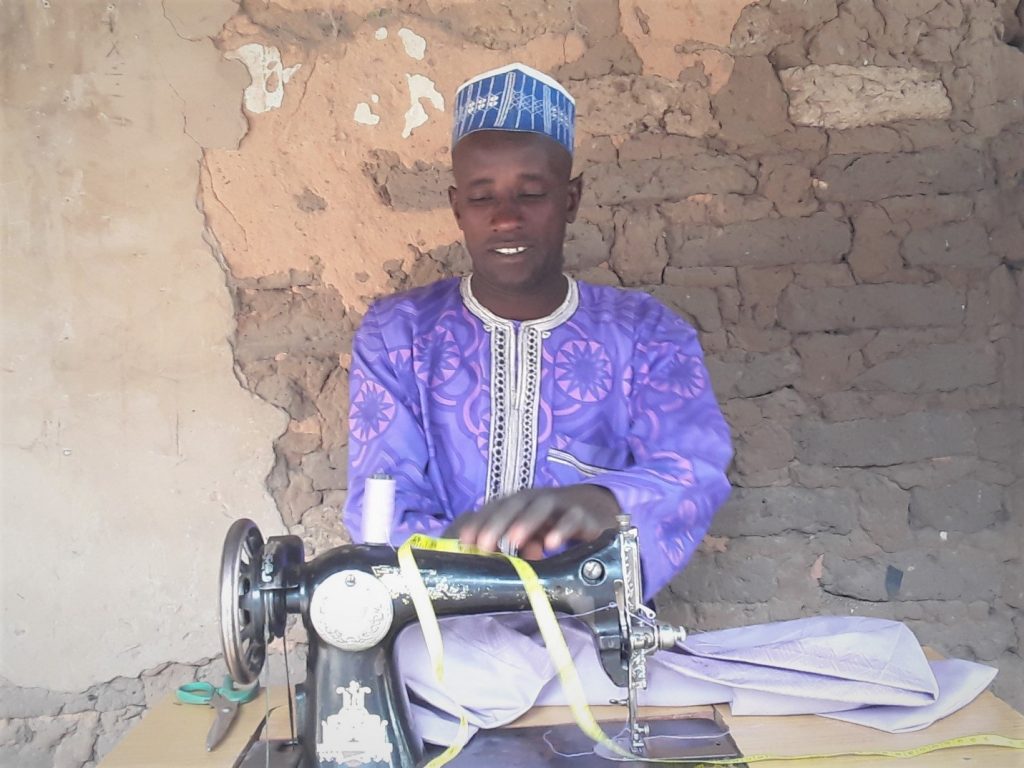Thousands of children marched on the streets of Soweto on June 16, 1976, demanding quality education taught in their own language. Tragically, many were massacred for their stance. The Day of the African Child honors their uprising and is celebrated to raise awareness about continued improvement in education for all African children, especially for girls and out-of-school children with no access to formal education.
Today, the fight for education and children’s rights continues across the continent. Lack of appropriate learning materials, untrained teachers, poor infrastructure, gender barriers, poverty, violence and more all contribute to a lack of basic literacy and numeracy skills for millions of African children. According to a 2018 study by UNESCO, 258 million children, adolescents and youth are out-of-school around the world. And one in every five out-of-school children lives in Nigeria.
With a major goal to increase access to basic education, the USAID-funded Northern Education Initiative Plus, a 5-year project, employs a holistic approach in addressing a broad range of critical factors that affect learning, teaching, systems management, parental participation and community engagement. Through its Early Grade Reading Program, the initiative has trained 9,458 teachers and school support officers, and provided access to basic education to 262,783 out-of-school children in Bauchi and Sokoto States.
An example of children who have benefitted from The Initiative’s education intervention is Basiru Bello and his brothers, Umar and Ahmed in Gamawa Local Government Area, Bauchi State. These three brothers had never been to a school before.

Their father, Musa Bello, a tailor could only enroll his boys at the Islamiyya Qu’ranic school. Fortunately, the Qu’ranic school where the three brothers attended was selected as one of the NEI Plus, Non-formal learning centres for Out-of-School children in Gammawa community. Basiru, Umar and Ahmed Bello learned how to read and write at the NFLC. The brothers wrote and passed exams and got enrolled into a formal school. Musa Bello is happy that his sons now have access to education and hopes for a better future for them.
Many children like Basiru and his brothers have gained access to formal education through the Northern Education Initiative Plus’ efforts working with partners in the Ministry of education, traditional and religious leaders, and Women Groups who educate parents about the importance of educating their wards.
At the Nigeria Annual Education Conference 2019, The Initiative was lauded for its contribution to education in Nigeria by the Vice President, Prof, Yemi Osinbajo. “I must thank very much our international funders and partners for the excellent work that they are doing, just looking at what is going on in Bauchi and Sokoto, is incredible,” he said.
The Initiative through technology-driven strategies continues to support children learning and government systems in the delivery of quality education. Even as the school system is greatly impacted by the COVID19 pandemic, the Northern Education Initiative Plus bridges the gap of learning by creating IVR audio lessons reaching parents and children across Bauchi and Sokoto States through about 40,000 mobile phones. Contents were also co-created for Radio and TV broadcasts for children to listen and watch lessons at home.
“For children to read, give them grade-appropriate books, teach them in a language they understand and train their teacher”, says Dr. Jordene Hale. Currently, The Initiative is developing learning materials in the Igbo and Yoruba languages so that more Nigerian children can improve their literacy and numeracy skills. As Elice Elegbe, USAID Education Office Deputy Director, says, “Education matters and no country can rise higher than the quality of its education”. As the world commemorates another Day of the African Child, more efforts need to be put into ensuring that no child is left behind in gaining access to quality education.
Written by Adebisi Adetunji
Comments are closed.


